We’ve all heard the saying, “Benevolence is repaid with benevolence. Malice is repaid with malice.” From the Buddhist perspective, this is correct. “Good deeds and thoughts” refer to possessing good conduct and ideas, all of which are recorded and then karmically rewarded when the time comes. The same goes for malicious thoughts and deeds – these are also recorded, with corresponding punishments meted out. As the saying goes, “Retribution will be served unfailingly”. What is worth knowing is that the karmic rewards for good deeds and thoughts are not able to counteract the karmic retribution brought about by our evil deeds and thoughts. In other words, if someone who has performed numerous good deeds has also committed one serious malicious deed, they will receive their karmic reward but be unable to escape their karmic retribution. That explains why some acclaimed kind-hearted people suffer in Hell after they pass away.
大家都知道“善有善报,恶有恶报”这句话,其实从佛法的角度来看这句话是完全正确的。善事善念指的是好的行为好的想法,凡是善事善念都会被记录在案,并且会在适当的时机得到善报。同样恶念恶行也会记录并给予惩罚,报应不爽。只是善事善念所带来的善报不能抵消恶念恶行所惹来的恶报,也就是说,当一个人做了很多善事,但也做了一件很大的恶事,那么他的善报一样会得到,而恶报也同样逃脱不了。这就是为什么有的人大家在人间公认他是个好人,但去世后却在地狱里受苦。
In Buddhism, the notions of merit and virtue are highly emphasised. What is a “merit and virtue”, and what good do they do? Merits and virtues are good deeds and thoughts, but they are considered to be meritorious and virtuous only after the making of a vow in front of Bodhisattvas. In the absence of such a gesture, our good deeds and thoughts – regardless of whether they are from our intention or done under the influence of Buddhism – will remain mere acts of self-expression. Take the following example: if a person has been practising vegetarianism for many years but did not make a vow before the Bodhisattvas, their practice can only be regarded as their personal lifestyle choice. This explains the importance of making a vow to practise vegetarianism before a Bodhisattva, as the practice would then become a meritorious action in our resolution to refrain from killing. Therefore, we must make a resolution when performing every benevolent and charitable deed, be it in helping others, showing filial piety towards our parents, or being kind to our siblings. However, there is one exception – good deeds performed at Buddhist places of worship, such as a temple or Guan Yin Hall. Deeds performed at these places are naturally considered meritorious and virtuous, rendering unnecessary the making of a separate resolution. Just as our documents need to bear the signature of a JP (Justice of the Peace) to be valid, good deeds and thoughts can only be transformed into merits and virtues if a resolution has been made and is witnessed by a Bodhisattva.
功德是佛法中非常强调的一个因素,什么是功德?它有什么用?其实功德就是善事善念,但是必须在菩萨面前许愿发心过的善事善念才是功德。平时我们的善事善念,如果没有在菩萨面前许过愿发过心,无论是自发的还是受佛法的影响,它就停留在自我表现的一个层次上。举个例子:一个人吃素,吃了好多年,但从没在菩萨面前发心许愿,那么即使十年吃全素,也只能是个人爱好。所以要在菩萨面前发心吃素,吃素就成为不杀生的一种善行,所以乐善好施,帮助别人,连行孝父母、友爱兄弟姐妹都要发心。但在庙宇观音堂等供养菩萨佛的地方,任何善事都是功德,不需另外发心了。这就像我们的文件要经过JP签字才能在法律上生效一样,善事善念只有在菩萨的见证下才可以转成功德。
What is the purpose of merits and virtues? We all know the damage karmic obstacles and negative karma can cause. They are like viruses in a computer program hiding in a person’s Alaya Consciousness. When the time comes, they will be incited to take effect. This explains why a perfectly healthy person can suddenly become critically ill, get involved in an accident or encounter a catastrophe. Some people’s negative karma is so heavy that they face problems constantly throughout their lives, making their complexions dull and always blaming everybody and everything except themselves. If one continues to commit malicious deeds and acts of killing (for example of animals) in their present life, and even if they have residual karmic rewards, their malicious deeds will transform into negative karma. In turn, it will be planted in the Alaya Consciousness. The Alaya Consciousness is the Eighth Consciousness – and the fundamental one. This consciousness stores countless karmic seeds that can trigger a person’s benevolent or malicious behaviour – in particular their mental behaviour. This is also where the karmic obstacles are stored. To remove karmic obstacles, we can only rely on significant merits and virtues. They can enter the Alaya Consciousness and counteract any karmic obstacles, resulting in purification. As the Buddhist verse goes:
“The body is a Bodhi tree,
The mind a standing mirror bright.
At all times polish it diligently,
And let no dust alight.”
We rely on our merits and virtues to remove the defilements from our minds. Therefore, one of the most important functions of merits and virtues is to eliminate and counteract karmic obstacles. In fact, that is the primary goal of any Buddhist practitioner. Only when karmic obstacles are eliminated can our minds become tranquil and peaceful, thus allowing us to gain wisdom and the possibility of eventual enlightenment.
而功德有什么用呢?大家都知道业障或孽障的危害,它们就像程序中的病毒一样潜伏在人的阿赖耶识,时间一到就激化成灵性,就开始对人产生作用,这也是为什么有的人突然之间从非常健康到病危抢救,或意外事故,或遭劫。甚至有的人孽障太深则一生不顺,面色阴暗,怨天尤人。而今生行恶或杀生,如果还有福报没用完,那么恶业也会变成孽障存入阿赖耶识。阿赖耶识是八识中之第八识,又名“阿梨耶识”,是根本识,阿赖耶识中藏有无数的种子,可以引发人的善恶行为(主要指思维活动)。孽障藏在此处,只有用大功德可以进入并抵消孽障,从而达到清理孽障的效果。这就是“身是菩提树,心如明镜台,时时勤拂拭,勿使惹尘埃”,要靠功德拂去心上的尘埃。所以功德的一个重要功能就是消除抵消孽障,这是修佛修心者的首要任务。只有孽障消除了,心才清净,智慧才开,才有悟的可能性。
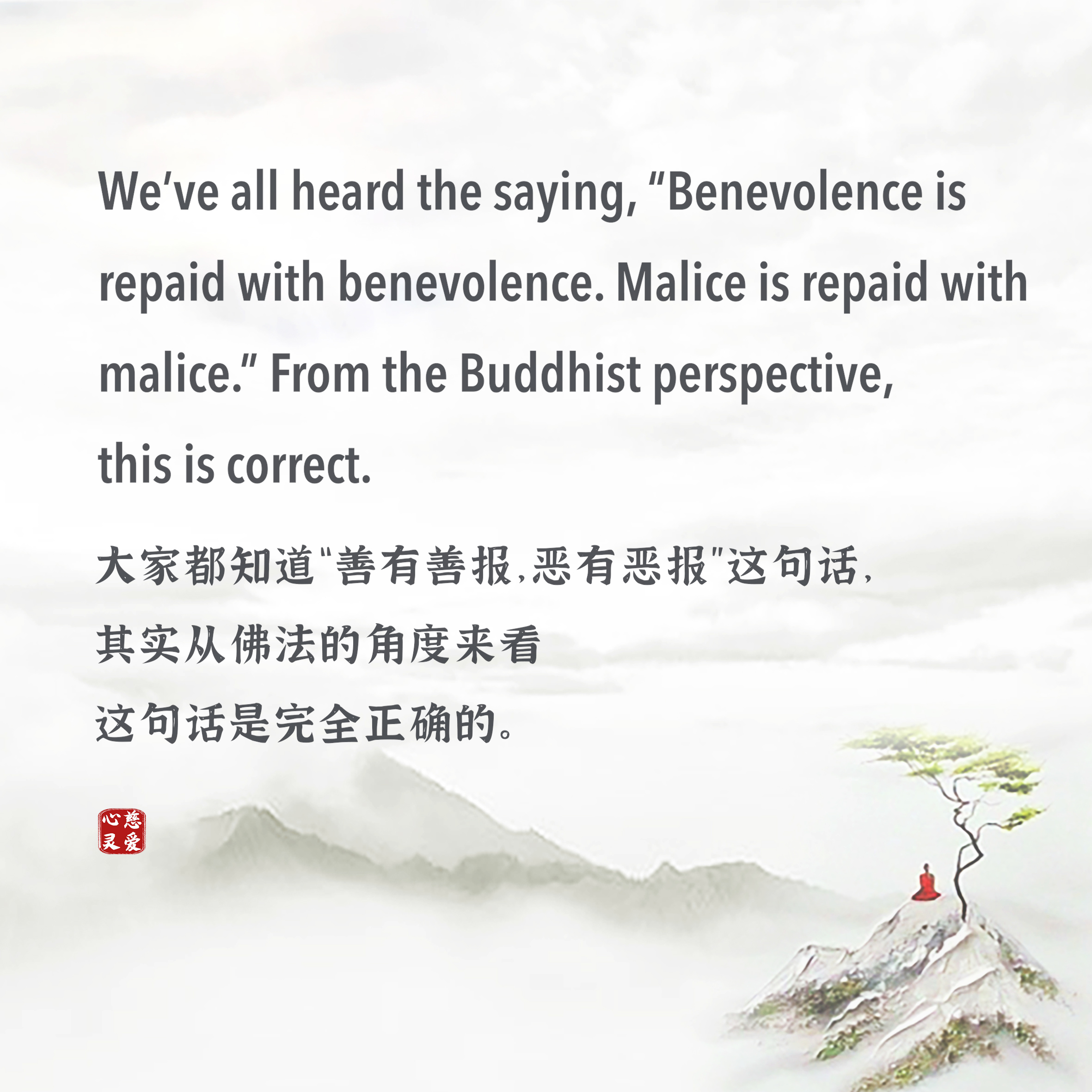
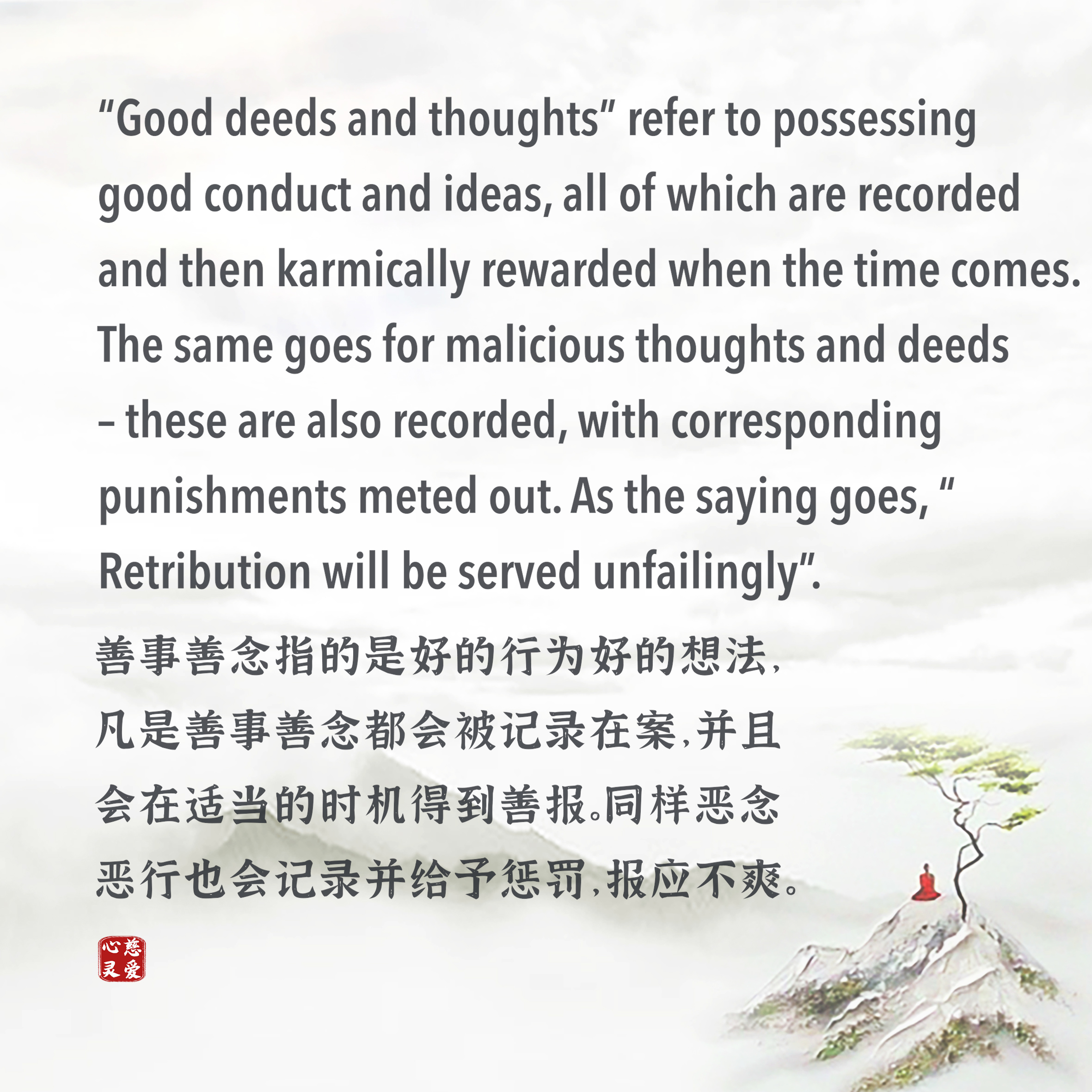
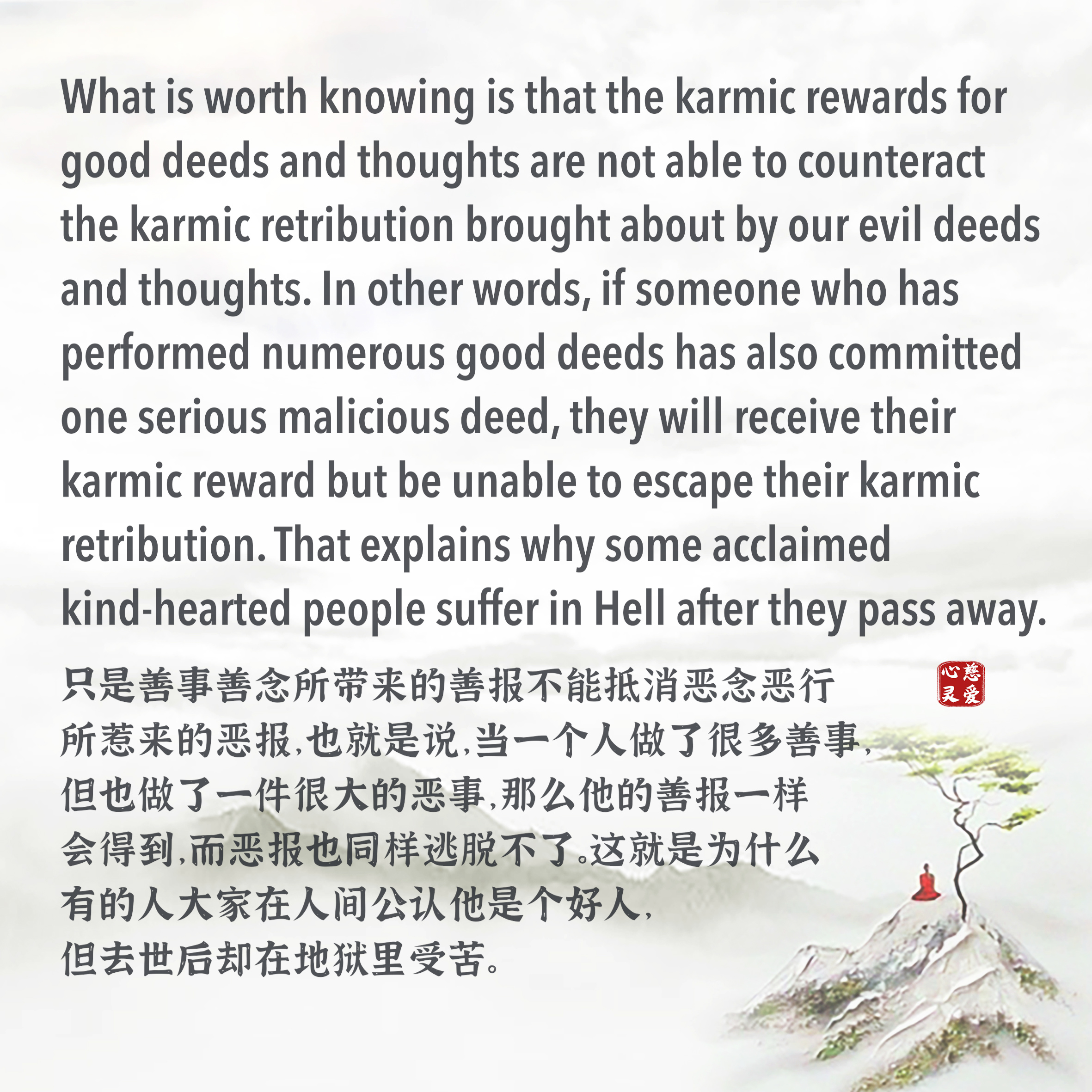
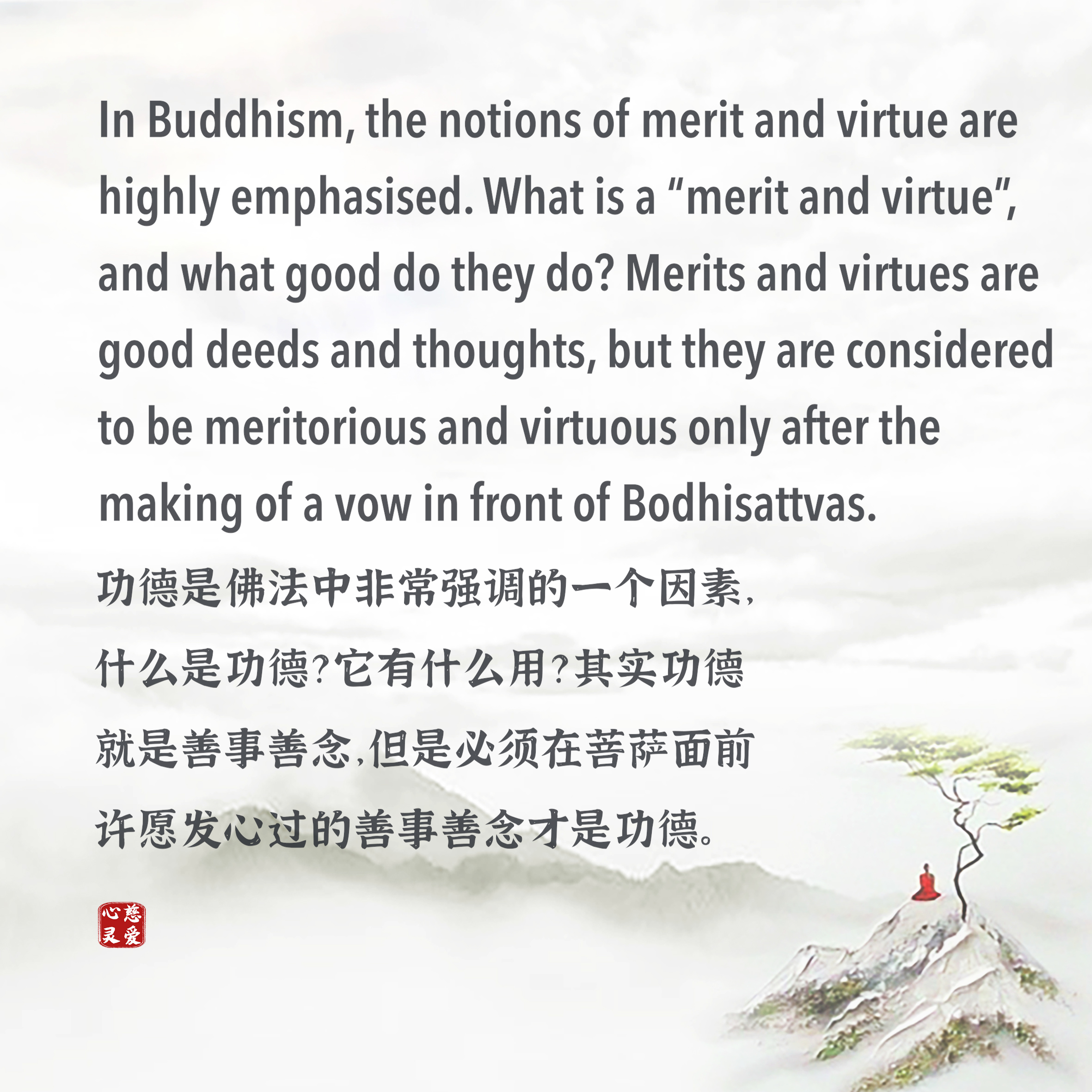
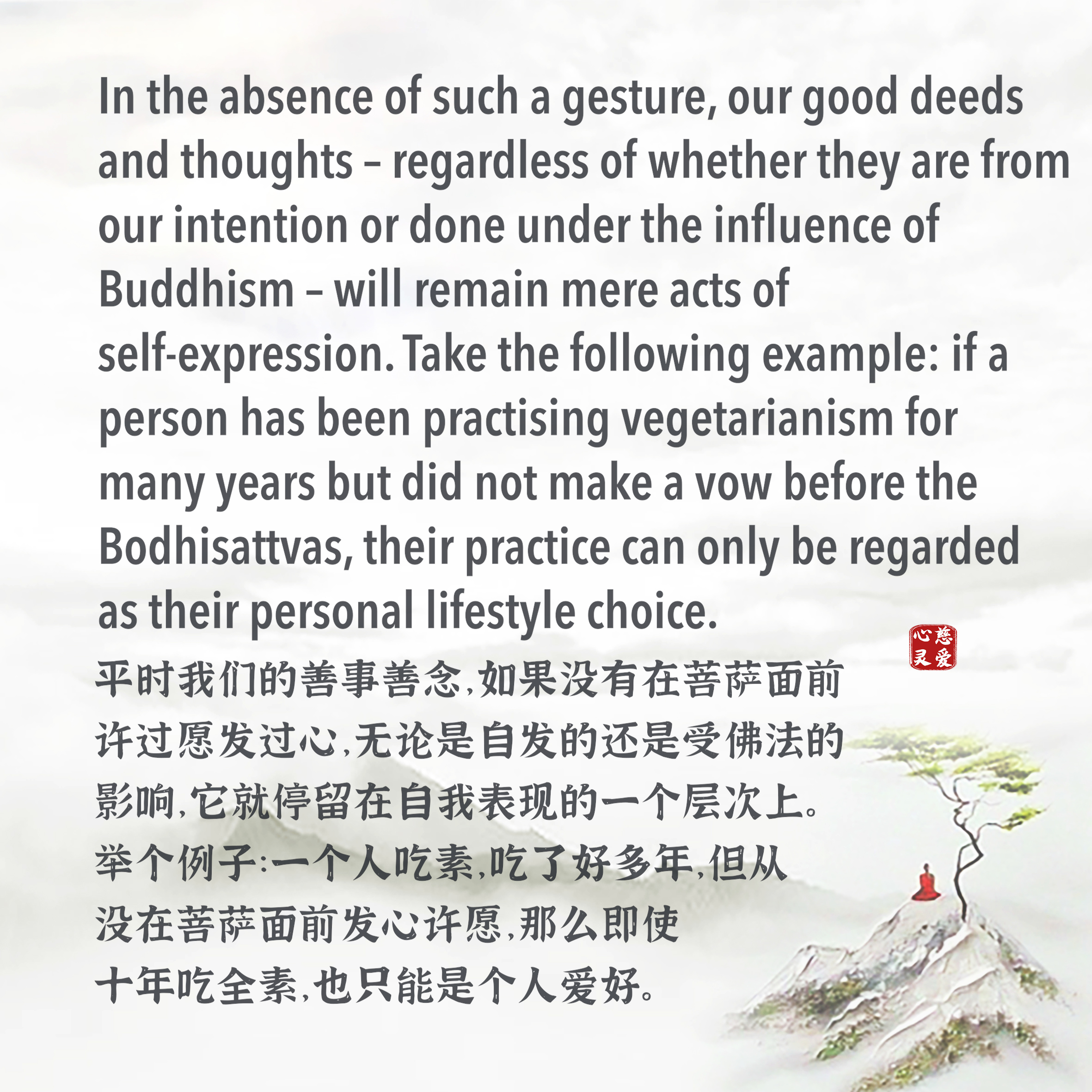
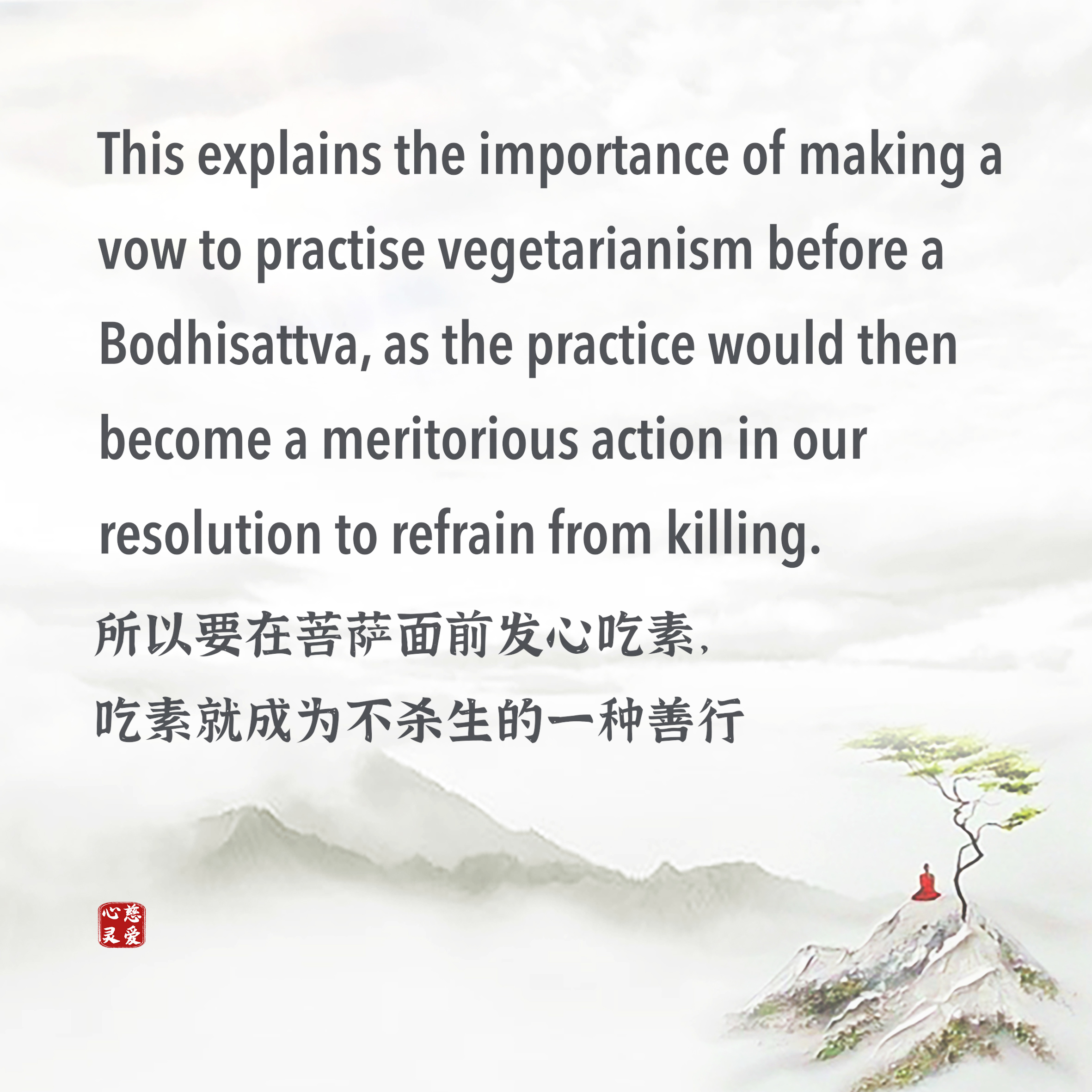
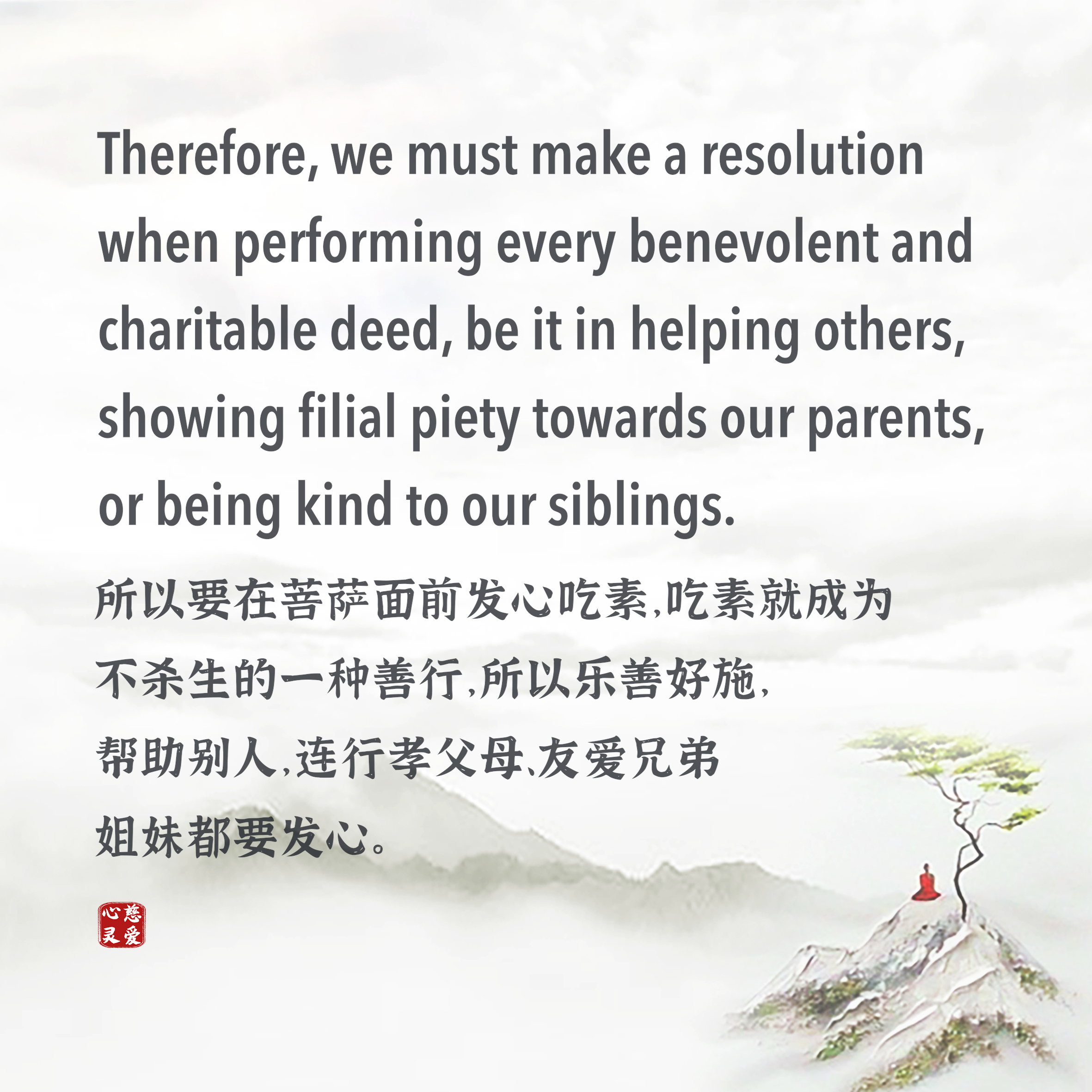
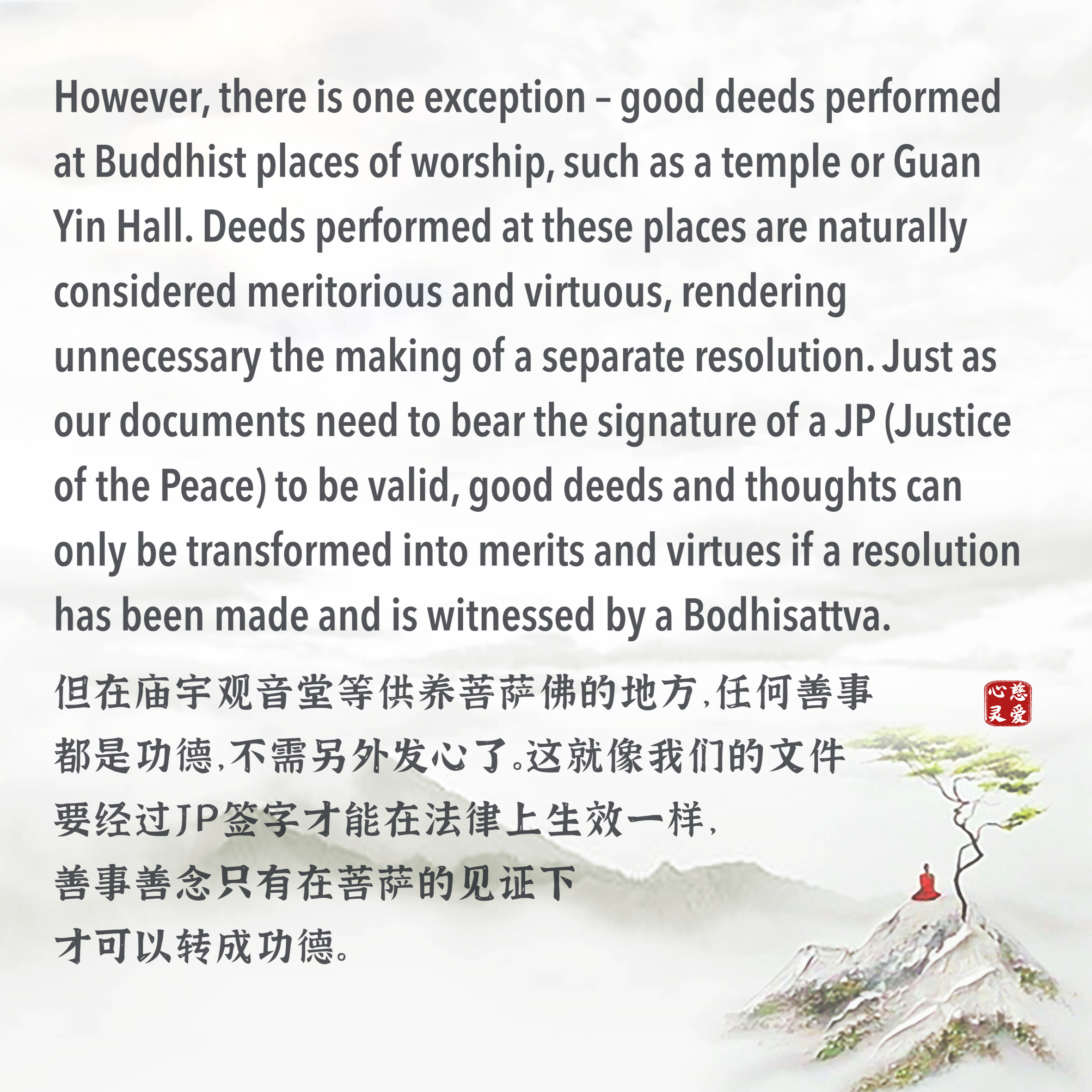
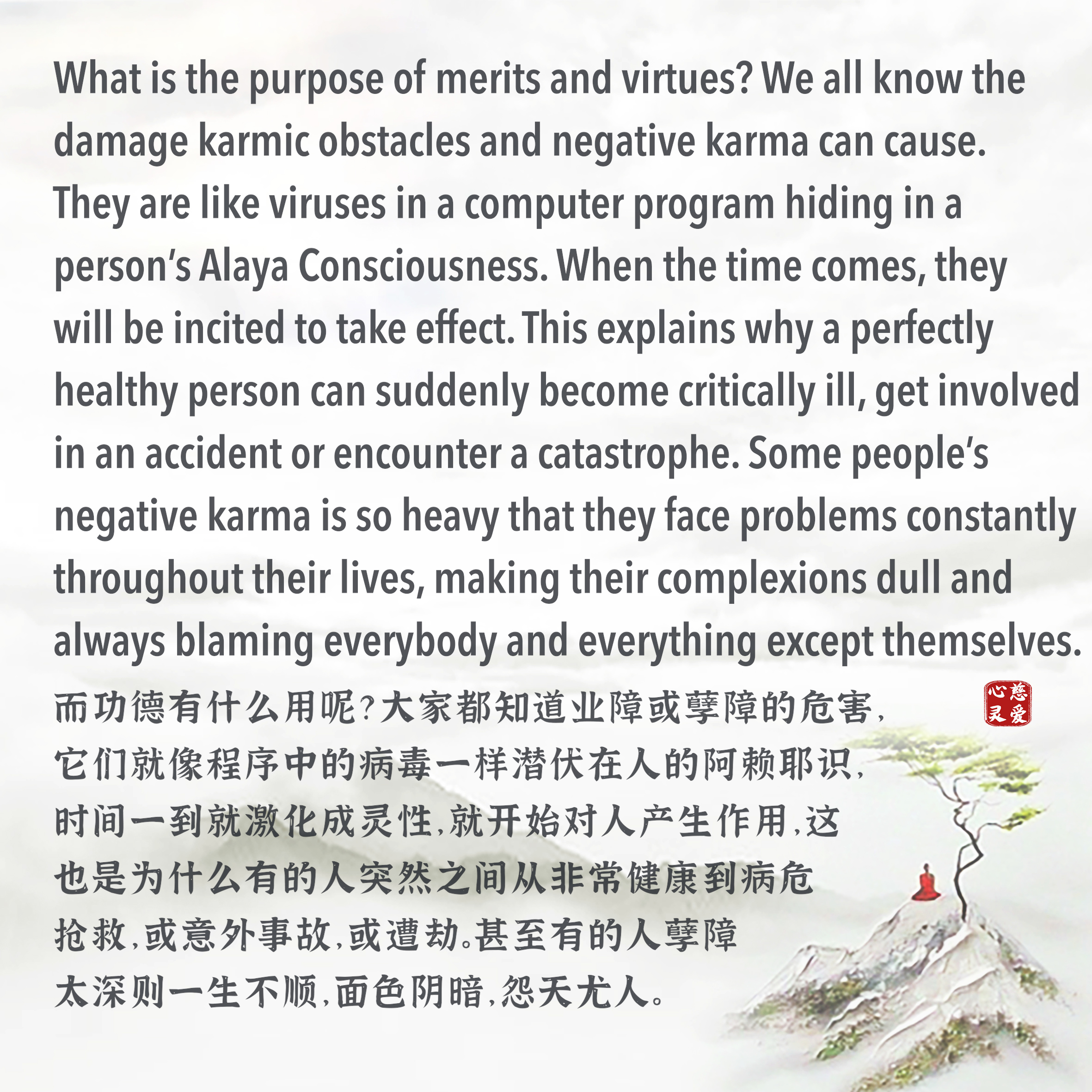

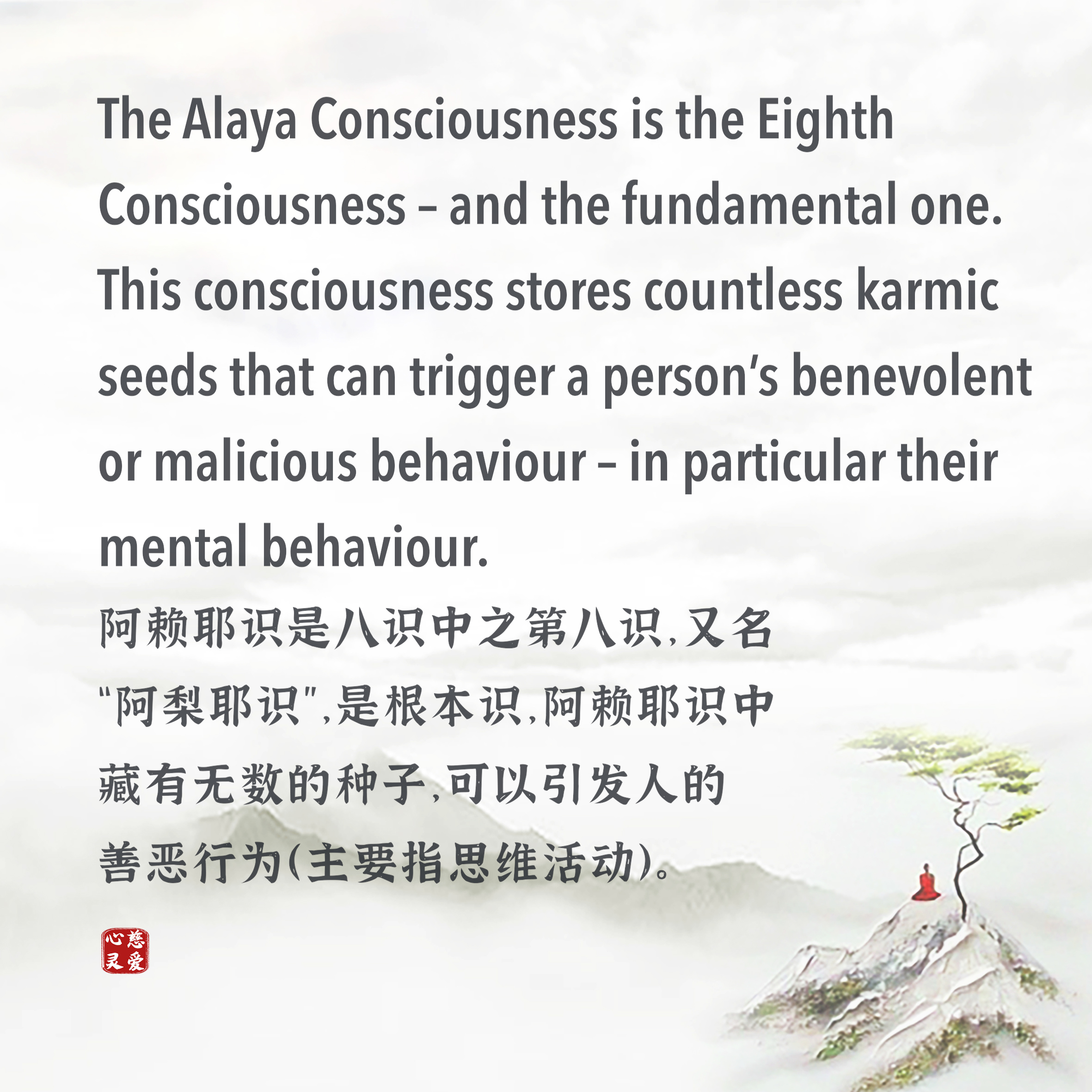
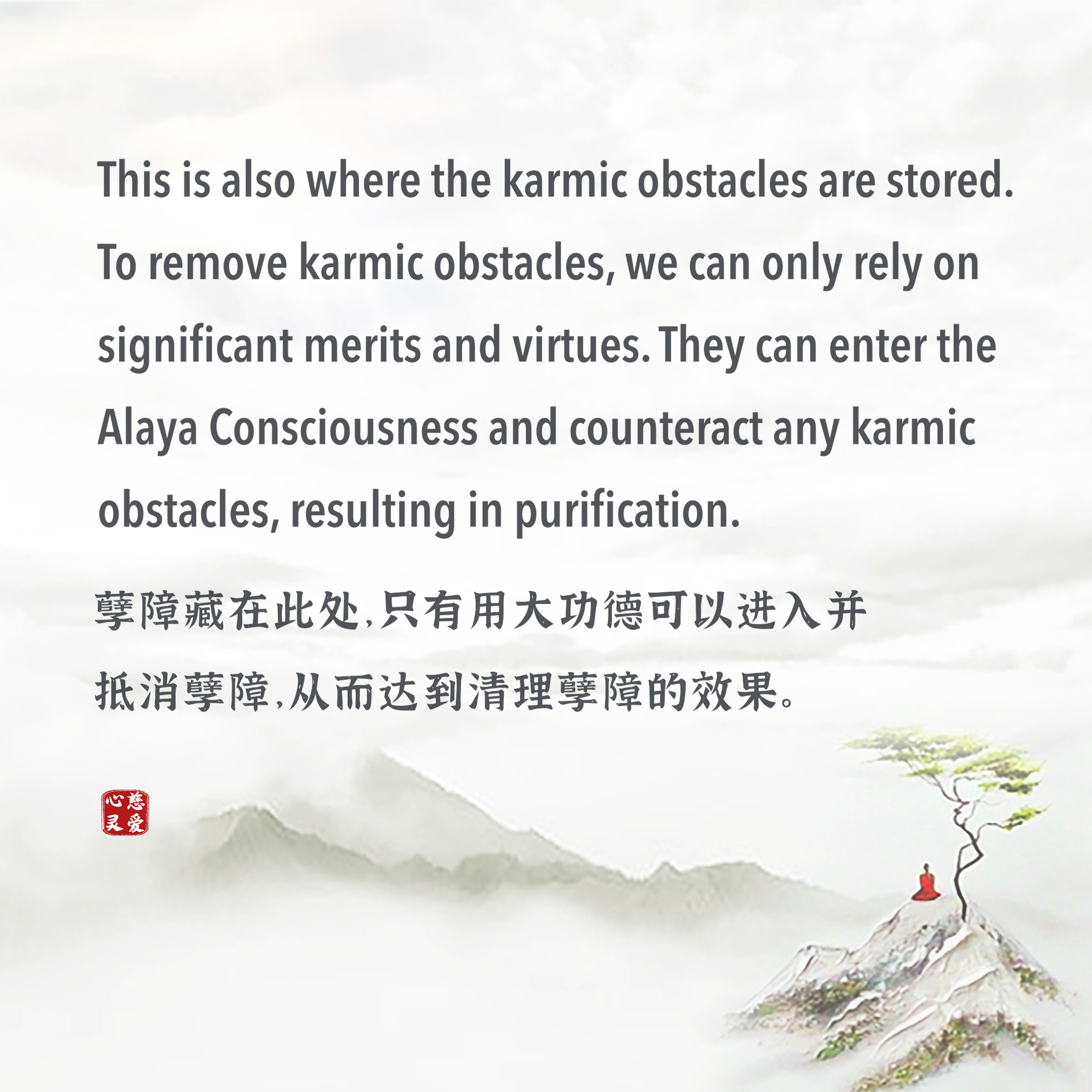
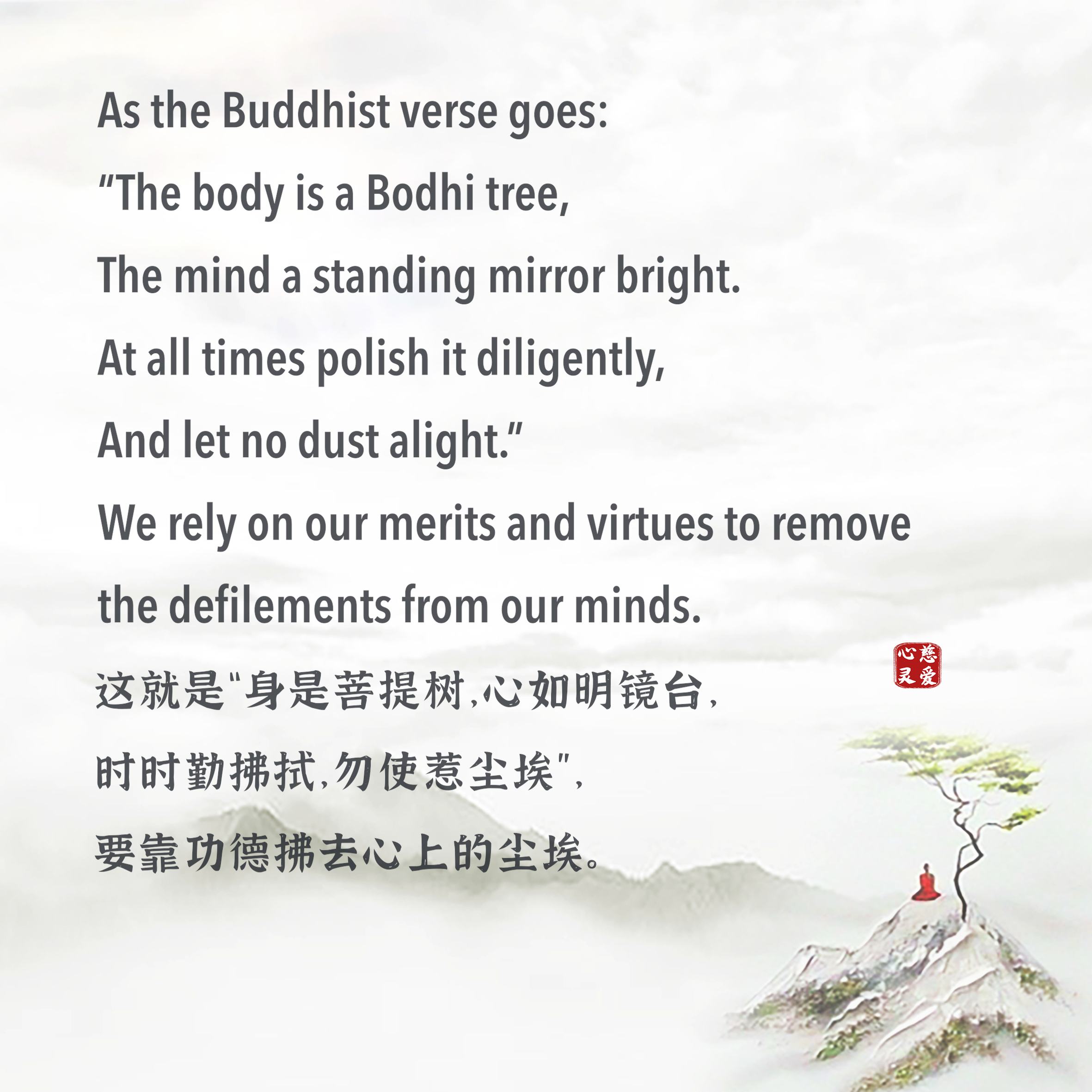
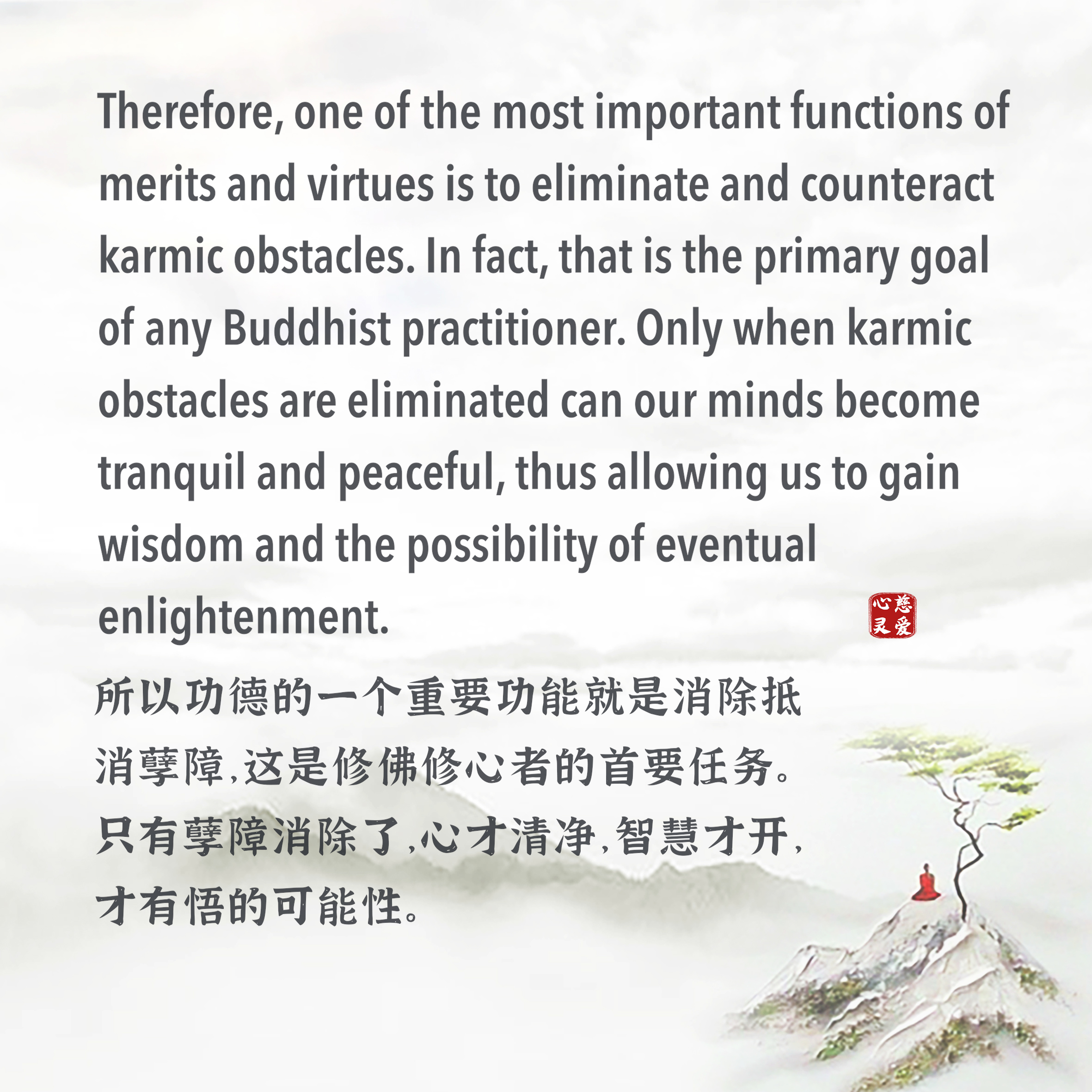
❤️师兄好,我是在线答疑助手!